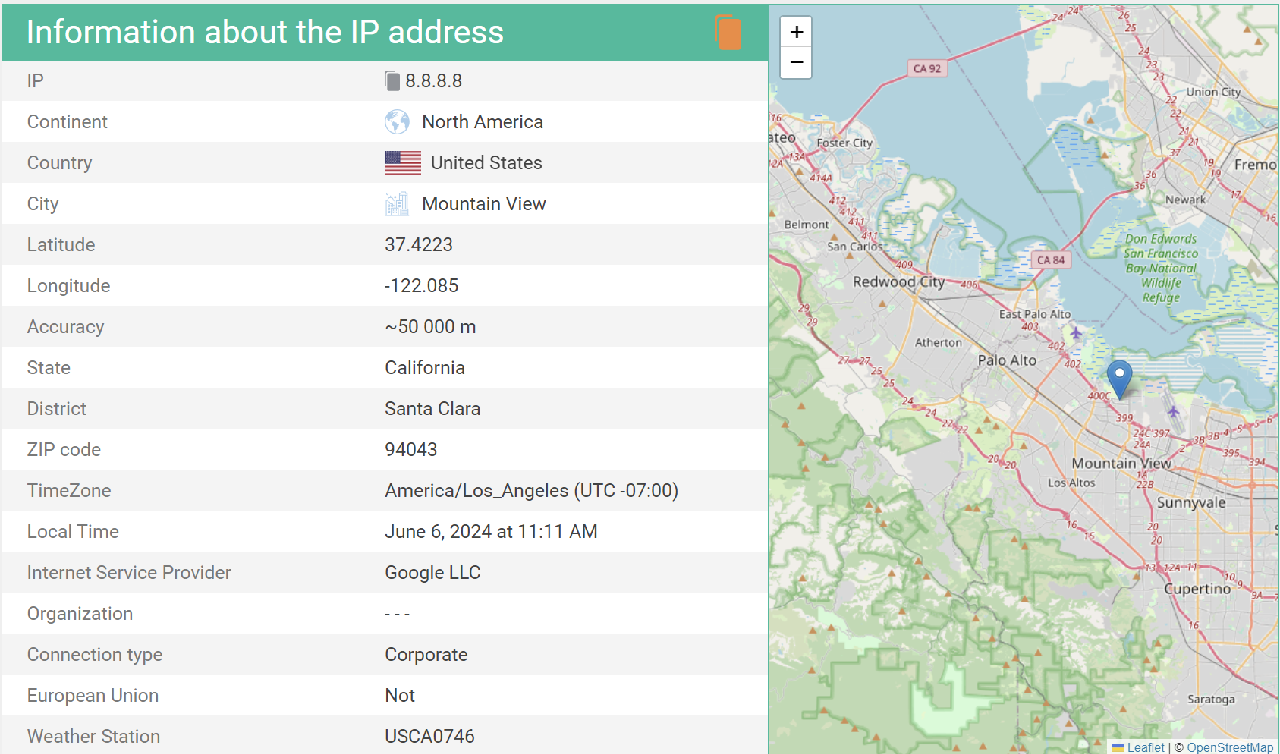Every internet-connected device is assigned a unique identifier known as an IP address. By tracking the IP addresses of website visitors, businesses can collect and store data in a centralized database. This process enables businesses to monitor visitor activity, including pages viewed, length of stay, and actions taken on the website.

What is an IP Tracker?
An IP tracker is a tool that detects, tracks, and determines the geographical location of a specific IP address. It uses various databases and tracking technologies to determine the country, city, and internet service provider, and sometimes more precise data such as latitude and longitude. Understanding the capabilities of an IP tracker can improve both the user experience and internet security measures.
These tools are often used by website administrators, marketers, and cybersecurity experts. By determining the location of visitors, organizations can tailor content to more accurately meet the needs and preferences of their audience. Accurate data from resources such as an IP tracker can enhance fraud prevention mechanisms and improve localization strategies.
IP trackers are particularly useful for cybersecurity professionals, as they can help identify potential threats and malicious actors. By tracking the IP address of a hacker or malicious user, cybersecurity experts can better understand the source of an attack and take appropriate measures to prevent future incidents.
In addition to improving security measures, IP trackers can also be used for marketing purposes. Marketers can use the location data provided by an IP tracker to target ads and promotions to specific regions or demographics, resulting in more effective and efficient marketing campaigns.
Overall, an IP tracker is a valuable tool for anyone looking to improve their internet security or tailor their content and marketing strategies to specific audiences. By accurately tracking IP addresses and determining their geographical location, organizations can better understand their users and make informed decisions to improve their online presence.
How to Use an IP Tracker
Using an IP tracker can be a simple process. Follow these steps:
- Visit the IP Tracker.
- Enter the IP address you want to track.

- Click on 'Check IP'.
- Analyze the provided report.

The IP Tracker provides users with a comprehensive report on the IP address they are tracking. The report includes information such as the IP address location, Internet Service Provider (ISP), and the type of device being used. The report also includes a map that shows the approximate location of the IP address.
Basically, if you need to know all the information about IP, then you have studied all the necessary instructions, but if you are interested in how to use more IP trackers, then read the sections below (we tried for a reason).
How Websites Track Your IP Address
When you visit a website, your IP address is automatically transmitted. Websites use this information to monitor visitor patterns, enhance security, and tailor marketing efforts. How they use this data depends on the website developers and their specific goals.
Advantages of IP Address Monitoring
Better Lead Generation: Analyzing visitor data allows businesses to effectively target marketing campaigns. Information about popular pages and traffic sources helps focus marketing strategies, leading to increased conversions and revenue.
Increased Sales: Understanding potential customers' actions on the site allows businesses to determine optimal moments for interaction and closing sales.
Improved Site Security: Tracking website visitors and their activity helps identify potential threats. Information about hackers' IP addresses can help businesses localize and mitigate threats, enhancing security.
Accurate Web Analytics: Collecting data on page visits and time spent viewing provides insight into which content attracts the largest audience. This allows businesses to refine their content strategy.
Application of IP Tracking
IP tracking is used in various fields to obtain analytical information, enhance security, and efficiently manage networks. Each application has its specific advantages.
Web Analytics
IP tracking plays a vital role in web analytics. It helps website owners understand visitor behavior by identifying patterns such as page views, visit duration, and user engagement. These data can be used to tailor content, improve user experience, and increase conversions.
By determining the location of visitors, businesses can customize marketing strategies for different regions. Additionally, tracking repeat visitors helps evaluate customer loyalty and the effectiveness of marketing campaigns. IP tracking also helps identify unusual traffic patterns that may indicate potential issues or opportunities for improvement.
Cybersecurity
In cybersecurity, IP tracking is necessary for monitoring network traffic to detect and respond to threats. It helps identify malicious activity such as DDoS attacks, intrusion attempts, and unauthorized access. Knowing the source IP addresses of potential threats allows for quick action to block or mitigate them.
Security teams use IP tracking to trace the sources of attacks, which helps in investigating and preventing future incidents. IP tracking also helps comply with security requirements by tracking access to network resources and usage patterns. Implementing IP tracking solutions can significantly enhance an organization's cybersecurity.
Network Management
Network management heavily relies on IP tracking tools to ensure the efficient and reliable operation of the network. These tools help administrators track IP addresses assigned to devices, manage IP address allocation, and detect IP conflicts.
IP tracking is crucial for maintaining accurate network accounting, which is necessary for troubleshooting and optimizing network performance. It also helps in capacity planning by providing insights into network usage trends. Continuous monitoring of IP addresses helps prevent downtime and ensures efficient use of network resources.
Effective IP tracking contributes to well-managed and secure network infrastructure, improving overall performance and reliability.
Frequently Asked Questions
What are the common uses of IP trackers?
IP trackers are widely used for both legal and illegal purposes. In marketing, businesses use them to determine the geographic location of website visitors, helping to more effectively target advertising. Cybersecurity specialists use them to identify the source of cyberattacks.
How can you determine the exact location of an IP address?
Determining the exact location of an IP address involves using tools such as IP lookup services, which use databases to match IP addresses with physical locations. Other methods, such as reverse DNS queries, are also used to obtain information related to IP addresses.
Can an IP address identify me?
No, an IP address does not reveal personal information such as name, social security number, or physical address. Searching for an IP address is legal and publicly available information, but it does not reveal specific personal data. Millions of devices, such as modems and routers, keep logs of IP addresses. Your home modem or 4G antennas connected to your phone keep logs of your IP addresses. Logs are necessary to maintain the internet. Internet service providers assign IP addresses and keep logs for internet access management and monitoring. Logs with IP addresses are everywhere!
Can I track someone's IP address?
No, you cannot simply track an IP address. First, you must obtain it. Compare this to receiving mail. If you receive mail, you can find out where it came from by looking at the return address. You will not have a return address if you do not have mail. By the same logic, if a letter does not have a destination address, you will not receive it, and it will be impossible to track.
In internet terms, you need the source address, destination address, and traffic (email or browser action) between them. Typically, an online business has a website or application as a destination address, and someone browsing the web is the source. If you are a business with a website or application and receive internet traffic to your website or application, you can see the IP addresses coming to your website or application. You can also see IP addresses in email headers you receive or in router logs. Locating an IP address can help determine its geographic location.
IP address tracking tools can be used to find the source of an IP address, including its geographic location, owner, hostname, and device type.
What options are available for tracking IP addresses for free?
Several free tools offer IP tracking capabilities. Websites such as IP Tracker provide free whois and IP lookup services. These platforms allow users to gather basic information about an IP address, including its location and internet service provider.
Can you track an IP address using a phone number?
Phone numbers cannot be directly used to track IP addresses. These are two different identifiers; however, you can use our service to determine the location by phone number, which also determines the IP address. More information can be found here.
When do authorities usually start tracking IP addresses?
Authorities usually begin tracking IP addresses in cases related to cybercrime, fraud, or serious security threats. Legal procedures are followed to ensure the protection of privacy rights before tracking actions are taken.
What data is included in an IP address?
An IP location tool can provide comprehensive information about an IP address, including:
- Continent
- Country
- City
- Latitude and longitude
- Accuracy
- Time zone
- Internet service provider (ISP)